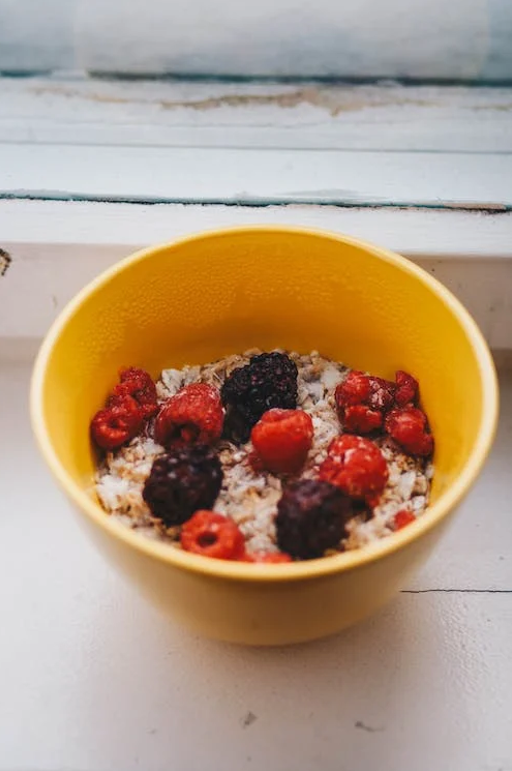It is vital that we eat healthy meals that are balanced and do not overeat. When we overeat, our bodies cannot process all of the food properly, leading to weight gain, fatigue, and other problems. By eating smaller meals more frequently throughout the day, we can keep our metabolism going and avoid these issues. In addition, we will have more energy and be less likely to snack on unhealthy foods. So next time you sit down to eat, remember the importance of eating healthy meals without overeating.
When people overeat, they consume more calories than their body needs. Excess calories lead to weight gain and eventually obesity, which is a significant risk factor for heart disease and stroke. It is also a leading cause of type II diabetes. In addition to the health risks associated with overeating, it can lead to indigestion, bloating, and gas. So not only is overeating bad for your health, but it can also be uncomfortable. When it comes to food, moderation is key. By avoiding overeating, you can stay healthy and avoid any unpleasant side effects.
Tips To Avoid Overeating
1. Eat slowly and savor your food – give yourself time to feel full.
When you eat quickly, it’s easy to overeat before your body has a chance to feel complete. But if you take the time to savor your food and eat slowly, you’ll give yourself a better chance of feeling satisfied with less. Eating slowly gives your body time to register the sensory experience of eating and release hormones that tell you when you’re getting full. It also gives your brain time to process those signals to stop eating when you’re no longer hungry. So take a moment to savor the flavor and texture of your food, and you may find that you don’t need as much to feel satisfied.
2. Avoid having meals in front of your TV or computer.
You’re not alone if you’ve ever mindlessly smacked in front of the TV or computer. In our fast-paced, always-connected world, it’s easy to take in more calories than we need without realizing it. Studies have shown that we tend to eat more when distracted, and food is everywhere we look. One way is to avoid eating in front of screens altogether. Make a rule that meals are to be enjoyed at the table, and reserve snacks for when you’re away from electronics. This will help you to be more mindful of what you’re eating and how much you’re consuming. Additionally, try to schedule regular mealtimes and avoid grazing throughout the day. You can regain control and avoid overeating by creating a structure around your eating habits.
3. Don’t eat when you’re stressed, angry, or sad.
When we are stressed, angry, or sad, it’s tempting to turn to food for comfort. However, this can quickly lead to overeating and weight gain. When we’re in a negative emotional state, we’re more likely to crave high-fat, high-sugar foods that give us a “quick fix” of energy. We’re also less likely to make healthy choices and be mindful of portion sizes. As a result, we may consume more calories than we need. If you reach for food when feeling down, try to take a step back and ask yourself if you’re starving. If not, distract yourself with a different activity or reach for a healthy snack instead.
4. You might want to try these gummies.
Have you ever gone through days where you feel like you can’t stop eating? If this is a problem, you might want to try THC gummies. It is a compound found in cannabis plants. Studies have published that THC increased serotonin levels in the brain, which might help control cravings. So, if you want a natural way to control your appetite, THC gummies might be worth a try.

5. Make sure you’re getting enough protein and fiber.
When it comes to weight loss, many people focus on cutting calories. However, it is also important to ensure enough protein and fiber. Protein helps to build muscle, which in turn helps to burn more calories. Fiber helps to keep you feeling full, so you are less likely to overeat. In addition, fiber aids digestion and can help reduce the risk of gastrointestinal problems such as constipation and diarrhea. So, if you wish to lose weight, you should include plenty of protein-rich foods such as lean meats, beans, and tofu, as well as high-fiber foods such as fruits, vegetables, and whole grains. By making these foods a part of your diet, you can help ensure that you will reach your weight loss goals.

6. Drink plenty of water throughout the day
Drinking water is crucial to our health and wellbeing, but it can also help to regulate our appetite. When we feel thirsty, it’s often mistaken for hunger, leading us to eat when our bodies don’t need food. We can stave off these false hunger signals, keep hydrated throughout the day, and avoid overeating. Drinking water before meals is especially effective in curbing the appetite, as it gives our stomachs a sense of fullness and helps us to eat less. Additionally, water helps to flush out toxins and keep our metabolism functioning properly. So next time you’re feeling peckish, reach for a glass of water instead of heading for the fridge – your waistline will thank you!
7. Exercise regularly
Overeating can be a real problem, especially if you’re trying to watch your weight. But did you know that regular exercise can help to control your portion sizes? When you work out regularly, your body becomes more efficient at burning calories. As a result, you may not need to eat as much food to feel satisfied. In addition, exercise can help to reduce stress levels, which can often lead to overeating. So if you’re looking to avoid overeating, get plenty of exercise.

